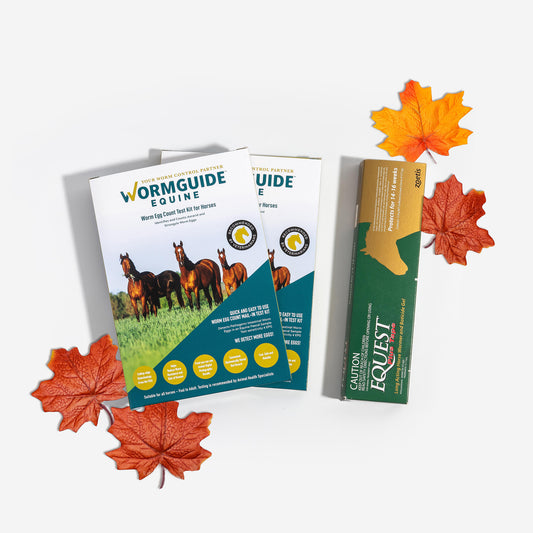The `slow catastrophe` has unfolded as the golden age of anthelmintics (horse deworming products) is coming to an end. This is very concerning because we don`t have anything left. We don`t have a new class of dewormer to replace our failing worming products.
Dewormer resistance issues are becoming an increasing concern. Deworming horses too much with deworming drugs comes with a risk of drug resistance. Horse worms can resist and survive treatment.
Shockingly, we have resistance to all 3 deworming drug classes now. Remarkably, the long -awaited resistance breakthrough of ivermectin and moxidectin in small strongyle worms has finally happened and experts agree many more reports can be expected to come in.
There are 3 major drug groups of horse dewormers. The label on the worming product tells you the active ingredient used.
Benzimidazole group (fenbendazole, oxibendazole, oxfendazole); pyrimidine group (pyrantel, morantel) and macrocyclic lactone group (ivermectin, moxidectin, abamectin).
We put accuracy, precision, and reliability first
Good horse health starts and ends with `high diagnostic value` egg counts. The highest precision faecal egg counts (FECs) are the most reliable. Since resistance testing is a BIG reason for performing egg counts, we have by far the most accurate and precise parasite egg counting technique available for you. And this is needed for resistance testing as well as making the right treatment decisions for your horses.
Our FECs not only meet the current best practice worm control but also provide you with peace of mind knowing that your horses are getting the preventative care they deserve.
We`re so excited …And you`ll love this too! We detect far more eggs in your horse`s sample compared to the simple, low-cost microscope method. In fact, the commonly used 100 year old McMaster microscope method is rated `low diagnostic value`- low precision, low accuracy, and low sensitivity by leading horse scientists Nielsen and Reinemeyer.
So, does my horse need to have faecal egg counts?
Glad you asked.
Faecal egg counts (FECs) are the foundation of modern worm control because you need information about the type of worm present (ascarid or strongyle), the level of strongyle egg shedding, and the efficacy of the dewormer that you are using.
Did you know Prof.Martin Nielsen`s review of anthelmintic (dewormer) resistance IS OUT! It summarises global resistance findings in small strongyle and ascarid roundworms. And yes, Australia is in there too.
Cyathostomins… try saying that! The small strongyle worm, the type of worm all horses get. The one we are always deworming for.
58 of 58 studies since 2000 found benzimidazole resistance. It`s everywhere!
34 of 37 studies found pyrimidine resistance
13 of 37 studies found macrocyclic lactone resistance. Most of these studies were in the past five years. This shows resistance is increasing. Researchers expect to find more horse properties with resistance to this drug class. If it is happening somewhere, it is happening somewhere else.
Here are the Australian Studies:
The 2002 study found resistance to benzimidazoles in 6 horse properties and resistance to morantel on two horse properties in New South Wales.
The 2021 study on two thoroughbred farms in Victoria. Farm A resistance against oxfendazole, abamectin, and oxfendazole + pyrantel. Farm B first evidence of moxidectin resistance was found.
Ascarids – easier to say. Commonly known as roundworm. It’s primarily a foal and yearling worm
29 of 29 studies completed since 2000 documented macrocyclic Lactone resistance
4 of 16 studies found pyrantel resistance
3 of 13 studies documented benzimidazole resistance
Here are the included Australian studies:
The 2014 study in foals over 3 months on five farms in NSW found ivermectin, pyrantel and fenbendazole resistance.
The 2015 study in South-East QLD on a group of weanlings tested and found ivermectin resistance.
The 2017 study in foals on five Australian properties found resistance to ivermectin and abamectin.
You better start looking! Otherwise, if you don`t evaluate the worming product you use – you`ll never know until it`s too late.
Resistance only goes one way, it gets worse. And once dewormer resistance is established in worms on a horse farm to a given worming product, that dewormer is likely to never work again.
So, keep sending the💩our way!
Our important Truth Teller FEC for individual horses is a faecal egg count reduction test (FECRT) to check your chosen deworming product works or not. You may need to change to another deworming drug if it doesn`t.
Our Gold Standard Resistance Detection Service for your herd is strongly encouraged so occurrence of resistant worms on your horse property can be detected, and appropriate interventions implemented as early as possible. You only need 6 strongyle egg positive horses from your herd.
Cue diagram…Test Treat Check
Told you!

Resistance testing is now recommended once a year.
Along with our test, treat, check for resistance FEC testing, our complete FEC range includes identifying worm egg type and monitoring egg shedding levels.
How to slow the speed of resistance?
So, whilst checking the dewormer you use is effective in killing the worms, more can be done. This is where FECs can help you slow the progression of resistance to keep the worming product you use functioning as long as possible and available for horses that really need treatment.
Researchers are committed and have worked hard for years to give us the solution - a way to respond to this horse health threat. One main problem with the old traditional deworming program is that all horses are treated the same. However, horses are individuals, and their susceptibility to parasites varies greatly.
Instead, we identify and target (select) the adult horses that always have high FECs. We call them high egg shedders. These horses receive more frequent treatment than horses that always have low FECs. High shedders spread most of the eggs in their manure on pasture infecting other horses and reinfecting themselves. The good thing is that horses tend to maintain their egg shedding level most of their lives, but a low egg shedder can shift to a high shedder due to stress. Doesn`t mean more worms, it means increased output of eggs on pasture.
Cue diagram…
Clarity in an instant for you!

Monitoring egg shedding levels twice a year is recommended in the current recommendations.
Our Super Surveillance FEC monitors your adult horse`s level of strongyle egg shedding.
It`s easy to construct an individual worm control program for each horse based on their egg shedding level.In most cases, you`ll find your horse needs less worming treatments.
Our free What do my Results Mean? Guide that comes with your horse`s FEC result is essential guidance for you.

Horse Babies need faecal egg counts
Before you know it, your 2022 horse babies will soon be weanlings.
Our Super Surveillance FEC also tells you the type of worm present in your horse. At 5 months just before weaning best practice recommends a FEC to determine the relative presence of ascarid (roundworm), strongyle or both. In most situations, there is no single dewormer that would effectively treat all worm types. So you may need to treat worm types separately with different worming products. Get useful info to select your youngster’s worming product. Check the treatment works for the type of worm present.
We take our convenient collect and send poo samples for testing very seriously at WormGuide and our Kits are unlike anything seen before in market.
We are proud to say that the biotech and fluorescence image analysis FEC technology that we use is scientifically validated. The sophisticated FEC goes a long way toward providing more consistent and reliable results for our beloved horses.💚










